Huawei, after months of “war of words” and political pressure with the U.S., has finally decided to bring the government to the court. In slapping the U.S. government with a lawsuit, the Chinese tech company said a law that bans United States federal agencies from buying Huawei products is against its very own Constitution.
The lawsuit, which was filed on Thursday, focuses on a provision in a law known as the National Defense Authorization Act. Huawei is targeting “Section 889” of that legislation which prohibits executive government agencies from buying telecommunications hardware made by Huawei and another Chinese firm, ZTE. Both companies are explicitly named in the act.
Apparently, Huawei’s lawyers will argue in the court that the National Defense Authorization Act – passed in August – violates the U.S. Constitution by singling out a single individual or group for punishment without trial. In a nutshell, the legislation was specifically designed to discriminate against the Chinese electronic giant.
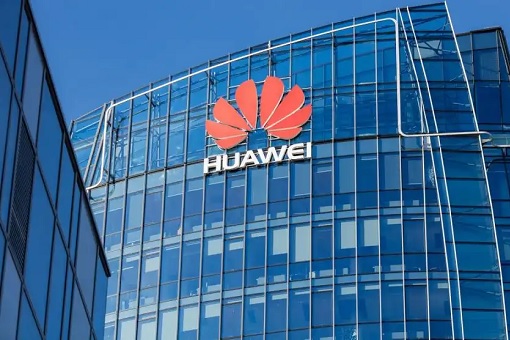
The lawsuit could be Huawei’s latest strategy aimed at forcing the Government of the United States to make its case against the Chinese equipment maker more publicly. In the same breath, the latest move is part of a broad push by Huawei to defend itself against a campaign led by President Donald Trump’s administration to undermine the company.
The U.S. commerce and treasury departments reportedly had subpoenaed the Chinese firm over suspected violation of sanctions against both Iran and North Korea. U.S. lawmakers, meanwhile, have repeatedly accused the Chinese company of being a threat to U.S. national security, arguing that its technology could be used for spying by the Chinese government.
In May last year, the Pentagon ordered stores on American military bases to stop selling smartphones made by Huawei and Chinese rival ZTE. And in February, top officials from the CIA, NSA, FBI and the Defense Intelligence Agency told a Senate committee that those firms’ smartphones posed a security threat to American customers.
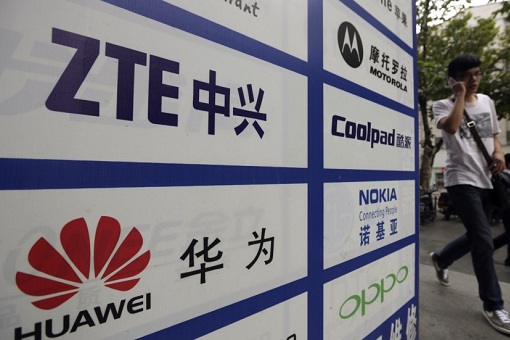
In what appeared to be a systematic and co-ordinated attack against the Chinese tech giant, the Trump administration launched an extraordinary campaign, similarly urging America’s allies to stop using the Huawei telecommunications equipment because the Chinese company apparently poses a security threat.
As far back as 2012, Huawei and ZTE Corp were the subjects of an investigation that looked into whether their equipment could pose a threat to US interests. Since then, the U.S. has been warning its allies against using Huawei technology for critical infrastructure, especially the members of the so-called Five Eyes, a group of five English speaking countries – U.S., Canada, New Zealand, Australia, Great Britain.
However, Huawei top executives, including the company’s founder Ren Zhengfei, have repeatedly denied the allegations that Huawei is a security risk. In its latest retaliation, Huawei brought its war to the phone industry’s biggest trade show – MWC Barcelona – where 100,000 participants were given another side of the story of the US-Huawei war.
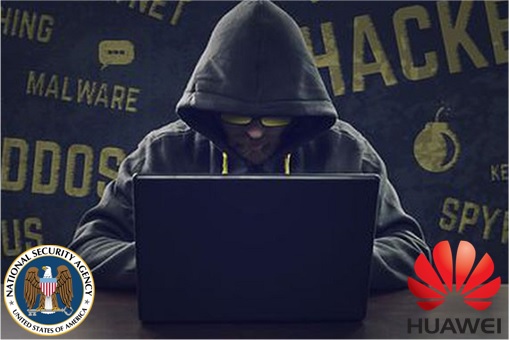
Huawei’s rotating Chairman Guo Ping delivered his boldest defence against the U.S. accusations, telling a packed main auditorium that the US had absolutely “no evidence” to back their claims. Mr. Guo pointed to a US federal law that compels U.S. tech companies to provide law enforcement officials with the requested data stored on servers – even if they are located on foreign soil.
Using the top secret US National Security Agency documents leaked by Edward Snowden in 2013, Mr Guo revealed that the real reason the U.S. declares war on Huawei was because the U.S. spy agencies could not spy beyond Huawei equipments. He also told the world how NSA tried to hack into Huawei’s servers, but failed. Huawei has become an obstacle for the NSA to “collect it all”.
The other reason being Huawei, after investing heavily in 5G research for the past 10 years, has positioned the company roughly a year ahead of its competitors. Hence, the U.S. had no choice but to keep the company out of the world’s 5G networks business by portraying the Chinese solution as a security threat. In doing so, the U.S. can retain its ability to spy until the country which has fallen behind, can catch up at a later stage.
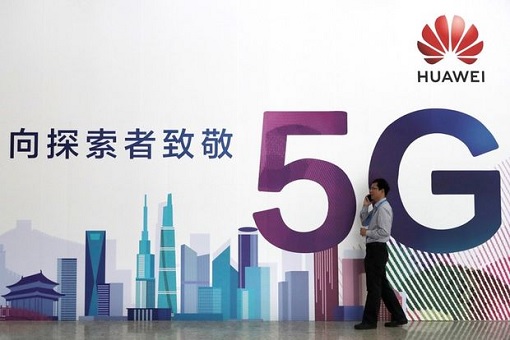
In its stunning lawsuit against the U.S. government, Huawei is likely to argue strongly that the provision is a “bill of attainder,” or a legislative act that singles out a person or a group for punishment without trial. That’s forbidden by the U.S. Constitution. In essence, by including the provision in the legislation and banning the Huawei’s sales to federal agencies in law, Congress is unconstitutionally acting as a judiciary.
Huawei hopes that if it succeeds in getting the U.S. court throws out Section 889 of the NDAA, it could open the door for conversations with the U.S. government. Glen Nager, lead counsel for Huawei has criticised the law – “It’s damaging Huawei’s reputation and it’s limiting the ability of Huawei to provide its innovative products, including 5G, to consumers in the United States,”
At the same time, Huawei Chief Financial Officer Meng Wanzhou who was arrested in Canada in December and was accused of breaking U.S. sanctions against Iran, is fighting back. She faces extradition to the U.S. But the CFO’s lawyers are now suing Canadian authorities, alleging they arrested, detained and searched her in violation of her constitutional rights.
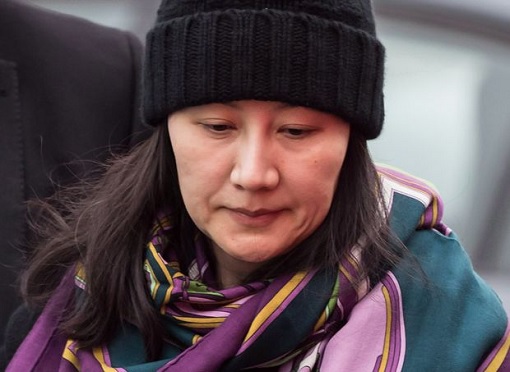
To put further pressure on the Government of Canada, China on Monday accused detained Canadian citizen Michael Kovrig of stealing state secrets passed on to him from another detained Canadian, businessman Michael Spavor. The latest move by Beijing clearly was a deliberate tactic to increase tension between both countries to a new level.
However, if the Russian cybersecurity firm Kaspersky Lab is any indicator, Huawei could face the prospect of having its case thrown out. On September 2017, the U.S. Department of Homeland Security ordered government agencies to stop using the Kaspersky software, alleging it could be used for espionage on behalf of Russia. Of course, the Russian company denied the allegations.
Kaspersky filed two lawsuits in response, arguing that the prohibition amounted to a bill of attainder. A judge in the District of Columbia dismissed both suits, ruling that Congress was motivated by the legitimate desire to protect government computer networks against Russian intrusion. Subsequently, Kaspersky also lost an appeal later in the year.
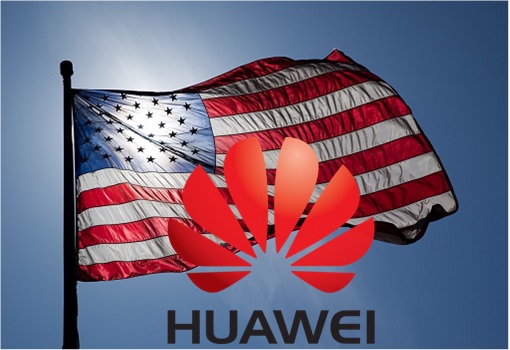
Other Articles That May Interest You …
- Huawei Strikes Back – U.S. Fears Of Being Left Behind, Fails To Hack Into Huawei To Spy
- Trade War Could End Soon – Trump May Even Drop Charges Against Huawei To Strike A Deal
- “You Cannot Crush Us” – Huawei Founder Warned About Shifting Investment From The U.S. To U.K.
- What Trade War? US Trade Deficit With China Hits Record High $323.32 Billion Last Year
- From Trade War To Political Kidnapping – Two Canadians Held “Hostage” As China Retaliates
- China Furious!! – CFO & Daughter Of Huawei Founder Arrested In Canada On Behalf Of The U.S.
- US-DOJ Investigates Huawei For Violating Iran Sanctions – It’s All About Business, Stupid!!
- China Invasion – Top 10 American Iconic Brands Now Owned By Chinese
- Here’s Why Whistleblower Snowden Refuses To Use iPhone
- Beware! Here’s How Government’s Spying On You, Legally

|
|
March 7th, 2019 by financetwitter
|


|

|

|

|

|

|




























Comments
Add your comment now.
Leave a Reply